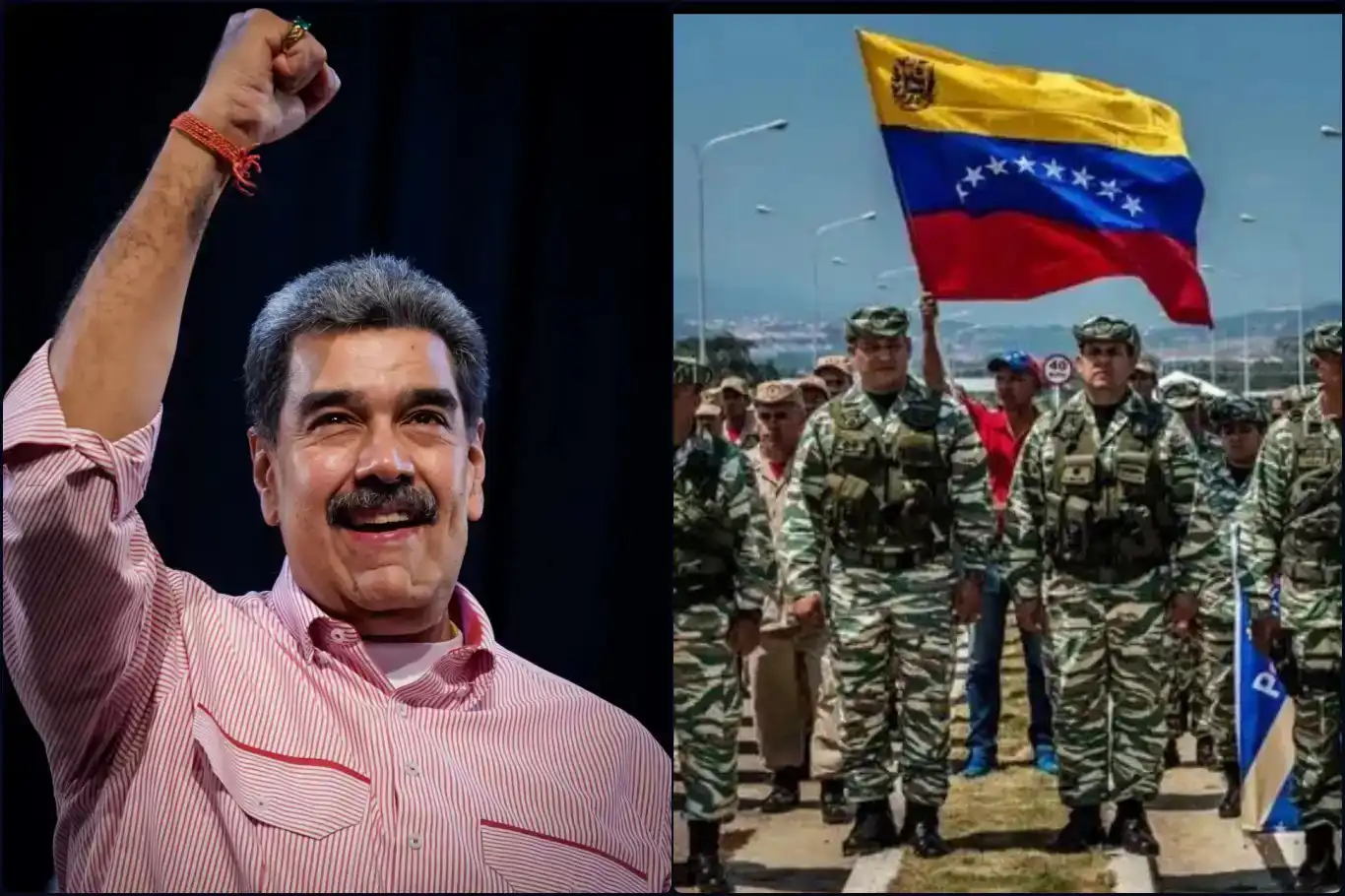Venezuela adopts defense plan to counter possible U.S. invasion


Venezuelan President Nicolás Maduro has announced the approval of a new National Defense and Transition Plan, designed to safeguard the country’s sovereignty in the face of what he described as “growing imperialist aggression” from the United States.
Speaking on Tuesday at an extraordinary congress of the ruling United Socialist Party of Venezuela (PSUV) in Caracas, Maduro declared that the plan provides for a transition from “peaceful struggle” to armed resistance if Venezuela faces a U.S. military invasion.
“We will not bow to imperialism. If the United States attacks, Venezuela will move from peaceful struggle to armed resistance,” Maduro stated, calling on Venezuelans to prepare for psychological warfare and foreign provocations.
The plan, according to government officials, includes the mobilization of local defense units, community-level organization, and the strengthening of national readiness against potential foreign intervention.
The announcement comes amid escalating tensions between Caracas and Washington, as the U.S. increases its military presence in the Caribbean region.
Recent reports indicate that U.S. troop numbers near Venezuelan waters could reach 16,000, in what analysts describe as one of the largest American deployments in Latin America in decades.
U.S. President Donald Trump, in a recent media interview, declared that “Maduro’s days are numbered,” but stopped short of confirming whether Washington is planning a direct military operation.
Maduro accused the U.S. of trying to reimpose a colonial order on Latin America, framing Venezuela’s stance as part of a wider struggle for independence and dignity across the region.
“The era of white supremacy and imperial dominance must end,” he said. “Venezuela’s sovereignty and dignity are not for sale. No foreign power has the right to threaten our homeland.”
The Venezuelan leader urged his supporters to strengthen local defense committees, organize communities, and remain vigilant against “foreign manipulation and subversive tactics.” He also appealed to the international community to recognize Venezuela’s struggle as “a fight for peace, independence, and the right to self-determination.”
Observers warn that the situation could deteriorate rapidly if diplomatic channels remain blocked. Regional analysts say Washington’s justification that its Caribbean military operations are aimed at combating drug trafficking has been met with skepticism from Latin American governments, who argue that the moves have clear geopolitical motives.
Since early September, U.S. naval and aerial activity has intensified in both the Caribbean and Eastern Pacific, in what regional leaders view as part of a broader effort to pressure anti-U.S. governments in the hemisphere.
Maduro’s declaration marks one of the most forceful responses yet to American pressure, reflecting a shift toward a defensive posture that could redefine Venezuela’s security strategy amid the ongoing standoff with Washington. (ILKHA)
LEGAL WARNING: All rights of the published news, photos and videos are reserved by İlke Haber Ajansı Basın Yayın San. Trade A.Ş. Under no circumstances can all or part of the news, photos and videos be used without a written contract or subscription.
The Economic Community of West African States (ECOWAS) has firmly rejected recent claims by U.S. President Donald Trump alleging that Christians are being systematically targeted and killed in Nigeria, describing the remarks as “false and dangerous.”
The death toll from Typhoon Kalmaegi, which has battered the Philippines since Sunday, has risen to 85, while at least 75 people remain missing, according to the National Disaster Risk Reduction and Management Council (NDRRMC).
At least 11 people have been killed and more than 30 injured after a massive fire broke out at a retirement home in the northern Bosnian city of Tuzla on Tuesday evening, authorities confirmed on Wednesday.